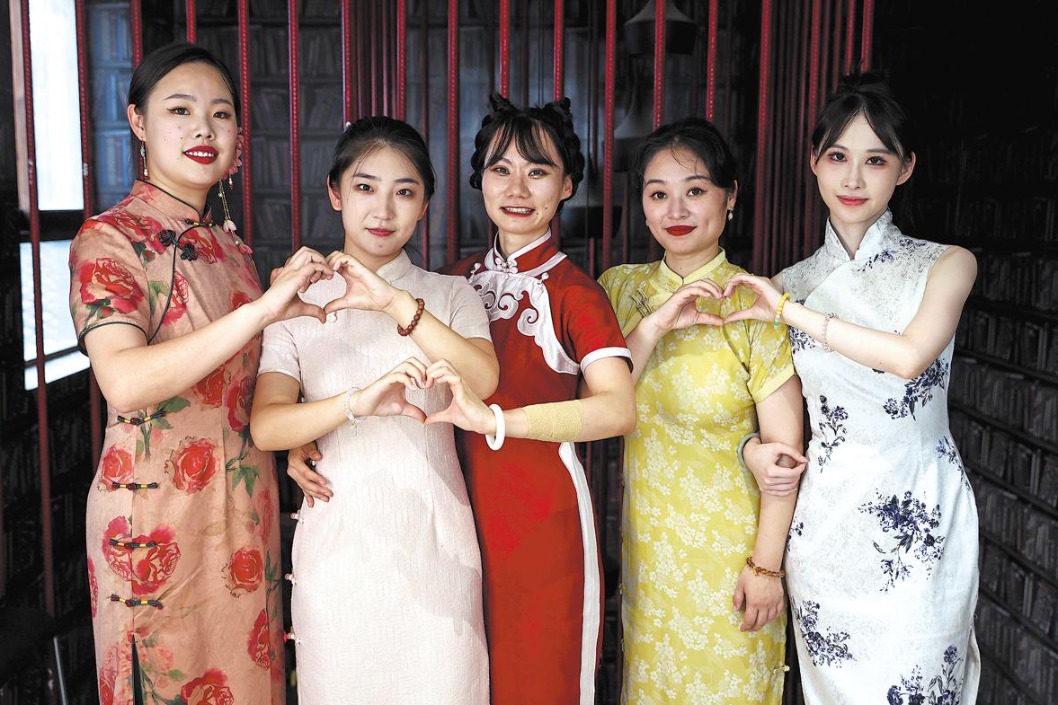Flourishing sprouts


Chinese agribusinesses are learning to avoid the growing pains of going global
Since the mid-1990s, guided by its "going global" strategy, Chinese agricultural companies have been expanding their businesses overseas in pursuit of greater development room. As of the end of 2019, Chinese agricultural enterprises had set up a total of 986 companies in 106 countries and regions around the world through foreign direct investment.
There are several ways for Chinese agricultural businesses to expand into international markets. The first is to have an overall plan and foster a whole industrial chain through resource integration. Such an expansion model is suitable for large-sized agricultural firms.
For instance, the China Oil and Foodstuffs Corporation, the leader of the agricultural and food industry in China and one of the world's leading agriproduct traders, has been making overseas investments since the 1980s. Through its takeovers of overseas agricultural enterprises such as Noble Agri and Nidera, COFCO has forged a complete agriculture and food industry chain encompassing agricultural resources, brands, ports and wharfs, processing equipment, storage and logistics facilities.
Shanghai Pengxin Group has also created a core industrial chain in its global business layout covering grain, agricultural materials, dairy and livestock. The company has also completed the acquisition of two Brazilian agricultural materials service companies, securing the sources for 8 million metric tons of grain, or 4.7 percent of Brazil's grain procurement market.
Second, small and medium-sized agribusinesses-which normally are not deep-pocketed enough to integrate all resources in the entire industrial chain-tend to make major breakthroughs in certain sectors with core technologies.
For instance, after its successful breeding of new varieties of dairy sheep, the Shanghai-based Be Well Food Group secured a place in the sheep milk industry with patented technology. The company has been selling sheep milk products in Europe and established a high-end sheep milk brand Maui.
Guangdong Haid Group, a China-based company engaged in the production and distribution of feedstuffs, has expanded its business scope to higher value-added sectors such as R&D, production and sales of high-quality seedlings, veterinary medicine and vaccine. The company is now the world's largest aqua feed producer.
Third, Chinese agribusinesses are banding together in their overseas forays. Instead of individual overseas expansion, more and more Chinese agribusinesses are joining hands to consolidate the industrial chain. Some of them have jointly taken the lead in establishing industrial chains or setting up cooperation demonstration zones overseas, gathering in one place agricultural R&D, production, processing, warehouse and logistics companies for cluster effect and better growth.
For instance, large Chinese firms including COFCO, Sinochem, Shanghai Pengxin Group, China Grain Reserve and China COSCO Shipping are joining hands in exploring the establishment of a whole soybean industry chain, which will increase the stability of key agricultural imports for China.
The China-Indonesia Julong Agricultural Industry Cooperation Zone, invested and constructed by Tianjin Julong Group, has thus far attracted 12 agricultural plantation and processing, logistics services, and other relevant companies.
The China-CEEC Agricultural Cooperation Demonstration Zone in Sofia, invested by Tianjin Food Group, has gathered over 20 agricultural R&D institutions and companies from China and Bulgaria.
But in addition to the aforementioned three strategies, Chinese agribusinesses need to take precautions and strengthen their risk prevention and management capabilities. Businesses will face critical risks that sometimes even threaten their viability if relevant political, market, financial, legal and natural disaster risks are not properly dealt with. Therefore, before going global, businesses should carry out thorough investigations and formulate all sorts of contingency plans to prevent and control risks.
Many Chinese agribusinesses, including Guangdong Agribusiness Group Corp, the Shanghai-based Bright Food (Group) and New Hope Group, have already carried out rigorous feasibility studies before making overseas investment decisions. With regard to such professional areas as laws and regulations, technologies and financial affairs, they will hire intermediaries such as investment banks and law firms to conduct due diligence and consult relevant embassies and consulates. The risk management departments of those companies will assess the investment projects' market, financing, foreign exchange rate and enterprise credit risks, as well as the host country's political risks, give out risk early warning when necessary, and conduct internal audit of overseas investment projects when needed.
In particular, the Shanghai-based Bright Food (Group) has invented a complete overseas acquisition model covering financing, acquisition, integration and asset securitization. At the same time, the group has been reducing the financial risks of overseas acquisitions and lowering the group's overall leverage ratio through overseas asset securitization.
A large number of Chinese agribusinesses have consolidated their industry chain through localization strategies. Since the 1980s, localization has become the most important means of globalization for Chinese businesses, providing a lot of room for their overseas investments.
For instance, in the Guangdong Agribusiness Group Corp's overseas companies, production line workers and over 95 percent of managerial staff, including a fair large number of senior executives, are local employees. The corp also organizes star employees from their overseas companies to take part in training courses and study in its Guangzhou headquarters.
Chinese agribusinesses should adhere to the localization strategy in their overseas expansion. Especially against the backdrop of growing instability in the international situation, agribusinesses can only have a favorable development environment when they are truly integrated into the local society.
Successful localization consists of three aspects-people (making the most of local employees), management (no changes to the well-functioning management procedure or framework of overseas businesses) and profit (striving to achieve win-win results with local government, local businesses and residents of the host country).
The author is director of Circulation and Industrial Development at the Macroeconomic Research Department and senior economist with the China Center for International Economic Exchanges. The author contributed this article to China Watch, a think tank powered by China Daily. The views do not necessarily reflect those of China Daily.
Contact the editor at editor@chinawatch.cn



































